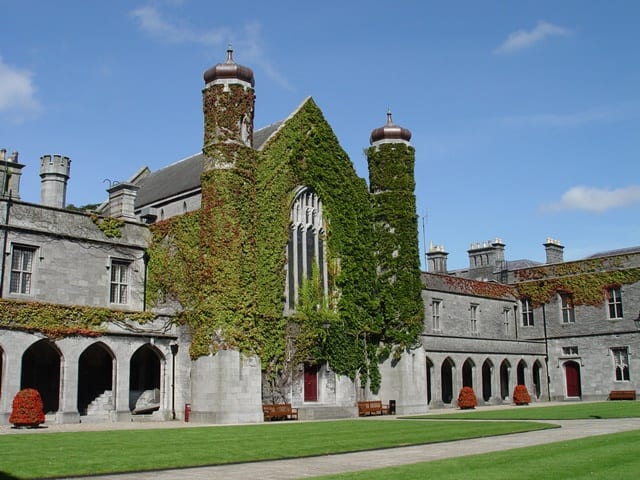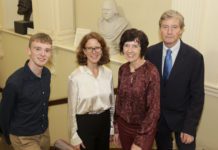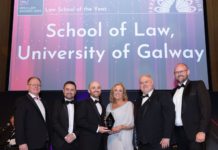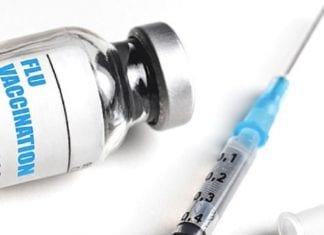Almost 4,000 students have been offered courses at University of Galway as part of Round One of the CAO process.
President of University of Galway Professor Ciarán Ó hÓgartaigh and Deputy President and Registrar Professor Pól Ó Dochartaigh congratulated the students for their efforts and achievements.
University of Galway outlined CAO points changes across all four of the University’s Colleges.
For the third year running and on the back of another year of near record demand for places in higher education, University of Galway expects to see an intake of around 3,500 first year undergraduate students.
Almost half of the University’s courses experienced an increase in points.
The University has more programmes in 500 range than in other ranges, and noticeably, all Engineering and Law programmes are above 500 points and all except one Commerce programme.
There is a resurgence in demand for Arts and courses with a strong creativity theme, an indication of the value of our continuing strategic education partnerships with the Galway International Arts Festival and Druid and of Galway as a creative city and university. These include Journalism; Global Media; Music; Drama, Theatre and Performance; History.
In the area of Teacher Education, Arts (Mathematics and Education) is up 3 to 418; while Education (Computer Science & Mathematics) shows an increase of 10 points to 435, indicating an interest in teaching and education, so important for the future generations and the fabric of our society.
In healthcare, given the limit on numbers, Medicine will be random selection, despite a small drop in the points requirement; Midwifery is seeing a 10 point increase to 463; while Nursing is seeing a slight fall.
Shannon College of Hotel Management and its programmes linked to the hospitality management sector continue to see an increase in demand, with points up.
On the sciences, Marine Science is up a significant 17 points to 477; while Mathematical Science is up 56 points to 566; Physics up 14 to 454; and Computer Science and Information Technology is up 11 to 521.
In Engineering, five of our eight programmes show an increase in demand – Energy Systems Engineering up to 520; Civil Engineering up to 512; Electronic and Computer Engineering up to 532; Electrical and Electronic Engineering up to 510; and Engineering (Undenominated) up to 533.
Of the seven programmes which saw a significant decrease in points requirement in 2022, five see an increase in demand this year – Arts with Human Rights; Arts – Drama, Theatre and Performance; Arts with Journalism; Global Media; Electronic and Computer Engineering
Some 30 programmes experienced points increases and another 30 programmes experienced points decreases from 2022.
Professor Ciarán Ó hÓgartaigh, President of University of Galway, said: “Comhghairdeas to the Leaving Cert class of 2023 who have demonstrated remarkable resilience over their studies. A new adventure now begins.
“A warm welcome awaits all those students who take up the offer to come to University of Galway and to learn for themselves the importance that we place on our values of respect, openness, excellence and sustainability.”
University of Galway Deputy President and Registrar Professor Pól Ó Dochartaigh said: “I congratulate each and every student who has navigated their post-primary years and the Leaving Cert in 2023, particularly as this year’s class felt such an impact from the Covid pandemic.
“Our registration team at University of Galway is once again doing stellar work to facilitate our students joining us this September.
“We welcome all those who have achieved in the exams and are taking up an offer to come to University of Galway and to learn for themselves the importance that we place on our values of respect, openness, excellence and sustainability.
“In the midst of the celebrations and endeavours of staff to secure places for as many students as possible we also hope that the Government seizes the opportunity in the coming year to begin to address the issue of inflated grades in the Leaving Cert exams and to put in place a fairer playing field for all students who are applying for undergraduate programmes.”













